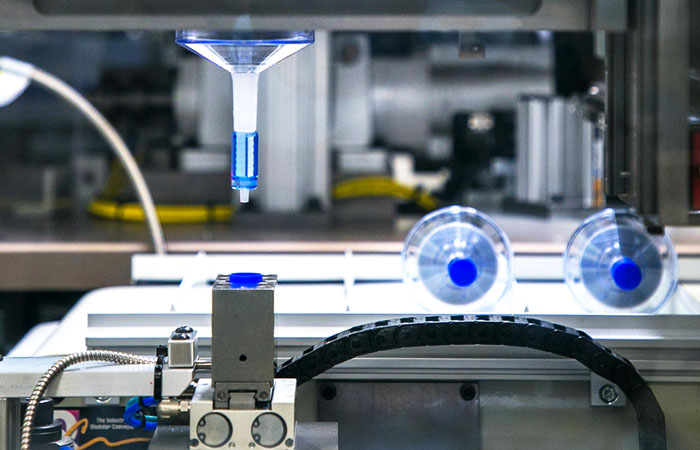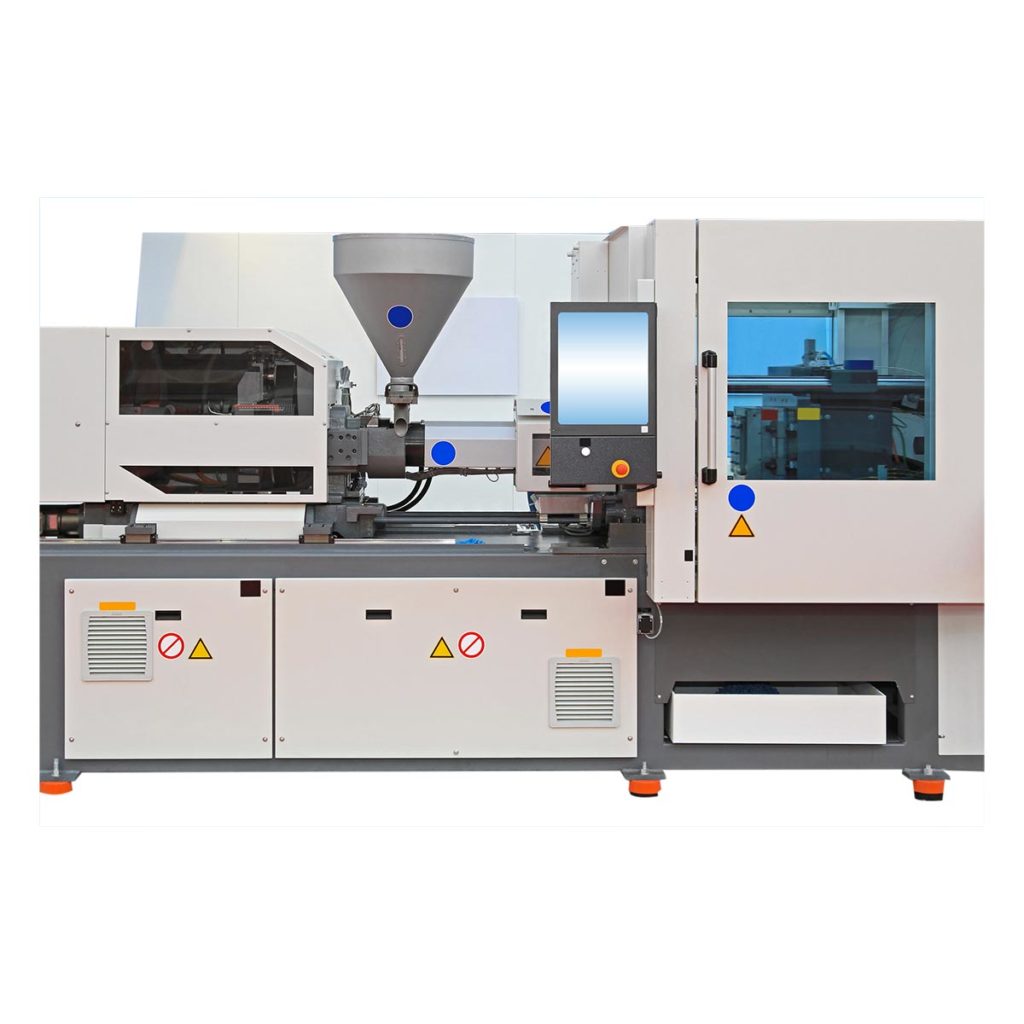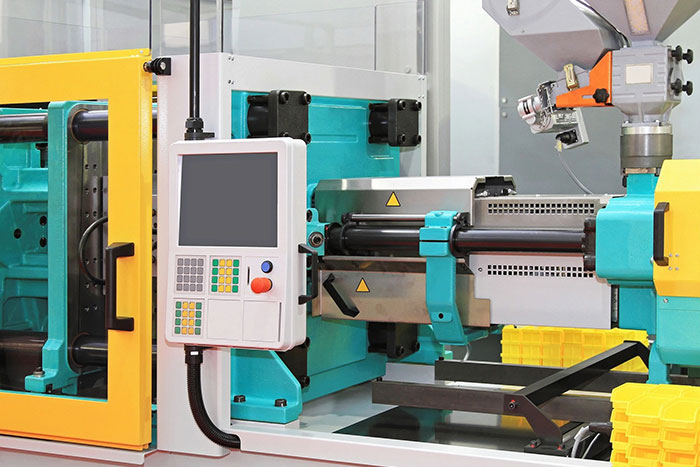The Future of Plastic Injection Molding: Trends and Advancements to View
As the plastic shot molding sector progresses, a number of key fads are arising that guarantee to improve its landscape. Automation and clever production techniques are established to boost efficiency, while the shift in the direction of sustainable materials reflects an expanding environmental consciousness.
Automation and Smart Production
As the plastic injection molding sector progresses, automation and wise production are taking spotlight, changing manufacturing processes - Plastic Injection Molding. The assimilation of sophisticated technologies such as robotics, IoT (Net of Things), and expert system is making it possible for manufacturers to improve efficiency, lower operational prices, and enhance item high quality. Automated systems enhance workflows, reducing hand-operated intervention and boosting throughput, which is vital in satisfying the increasing demand for fast manufacturing cycles
Smart manufacturing innovations promote real-time tracking and data analysis, enabling business to enhance equipment performance and forecast upkeep requirements. This aggressive strategy not just lessens downtime yet also extends the lifespan of tools. Moreover, using collaborative robotics, or cobots, improves the versatility of production lines, making it possible for equipments and employees to run side by side safely and successfully.
The adoption of automation in plastic shot molding is not just a fad however a strategic essential for companies intending to continue to be competitive in a global market. By utilizing these innovations, makers can achieve higher precision, lower waste, and adjust quickly to transforming consumer demands, positioning themselves for lasting development in an increasingly computerized future.
Lasting Products and Practices
The push towards automation and wise production has paved the method for a higher emphasis on lasting materials and techniques within the plastic injection molding industry. Companies are increasingly looking for environment-friendly alternatives to conventional petroleum-based plastics, leading to the fostering of bio-based and recycled materials. These lasting materials not just decrease environmental impact yet likewise straighten with customer demand for greener items.

Moreover, partnership between suppliers, material distributors, and environmental companies is cultivating development in the development of sustainable products that satisfy performance criteria without compromising high quality. As laws around plastic usage become more stringent, the market is positioned to adjust by embracing these sustainable strategies, guaranteeing lasting stability and lowering dependence on non-renewable sources. The combination of sustainability into plastic injection molding is not merely a pattern; it is ending up being an essential element of business responsibility and operational excellence.
Breakthroughs in 3D Printing
Recent improvements in 3D printing modern technology are substantially transforming the landscape of plastic injection molding. Difficult or as soon as challenging to attain with conventional techniques, the assimilation of additive production processes allows for the fast prototyping of intricate geometries that were. This ability not only accelerates product advancement cycles yet additionally reduces material waste, aligning with the growing demand for lasting manufacturing methods
In addition, the development of crossbreed production techniques, which combine 3D printing and shot molding, offers makers the ability to produce intricate layouts while maintaining the efficiency of mass production. This strategy enables the manufacturing of personalized parts tailored to specific customer needs without compromising the speed and scalability that shot molding supplies.
Furthermore, developments in products, such as high-performance polymers and composites specifically created for 3D printing, are enhancing the useful capacities of published elements. These materials can withstand better tension and exhibit enhanced thermal residential or commercial properties, making them ideal for more demanding applications.
As 3D printing remains to advance, its combination right into plastic shot molding procedures assures to improve performance, reduce prices, and foster development in product layout, placing manufacturers to much better fulfill the challenges of an open market.
Data Analytics and IoT Integration
Information analytics and the integration of the Net of Points (IoT) are reinventing plastic injection molding by supplying producers with extraordinary insights right into their operations. By leveraging real-time data gathered from interconnected equipments and sensing units, producers can keep an eye on efficiency metrics, determine inefficiencies, and maximize production processes. This data-driven technique helps with anticipating maintenance, lowering downtime and prolonging tools life expectancy.
In addition, IoT assimilation enables for enhanced quality control. By constantly tracking variables such as pressure, temperature, and cycle times, producers can quickly discover inconsistencies from established specifications and make changes in actual time. This not just boosts product consistency however look what i found also lowers waste and scrap rates.
The fusion of data analytics and IoT modern technologies also encourages producers to take on more nimble production strategies. With access to thorough information analytics, organizations can reply to market demands with greater adaptability, changing manufacturing schedules and arrangements as needed. This flexibility is important in a rapidly transforming production landscape.

Modification and Design Versatility
Exactly how can personalization and layout flexibility enhance the competition of plastic shot molding? Customization enables producers to satisfy particular customer requirements, accommodating distinct dimensions, forms, and functionalities that conventional products may not accomplish.
Advancements in design technologies, such as computer-aided style (CAD) and quick prototyping, additional boost this pattern. These devices allow developers to produce complicated geometries and detailed patterns, which can be seamlessly incorporated right into the production process. As an outcome, producers can react quickly to altering customer preferences and market needs.
Furthermore, the execution of modular tooling systems improves layout versatility, allowing for quicker adjustments between different product layouts without extensive downtime. This websites flexibility can bring about decreased lead times and lower production expenses, making companies a lot more active and affordable. Ultimately, accepting modification and why not try this out style flexibility in plastic shot molding not only elevates item offerings however likewise strengthens market positioning in an ever-evolving landscape.
Final Thought
The future of plastic injection molding is identified by significant developments in automation, lasting practices, and ingenious materials. Personalization through modular tooling and fast prototyping will certainly enable makers to stay affordable and receptive to the dynamic needs of the market.

The future of plastic shot molding is identified by considerable advancements in automation, sustainable methods, and cutting-edge products.
Comments on “Exactly How Plastic Injection Molding Drives Performance in Automation”